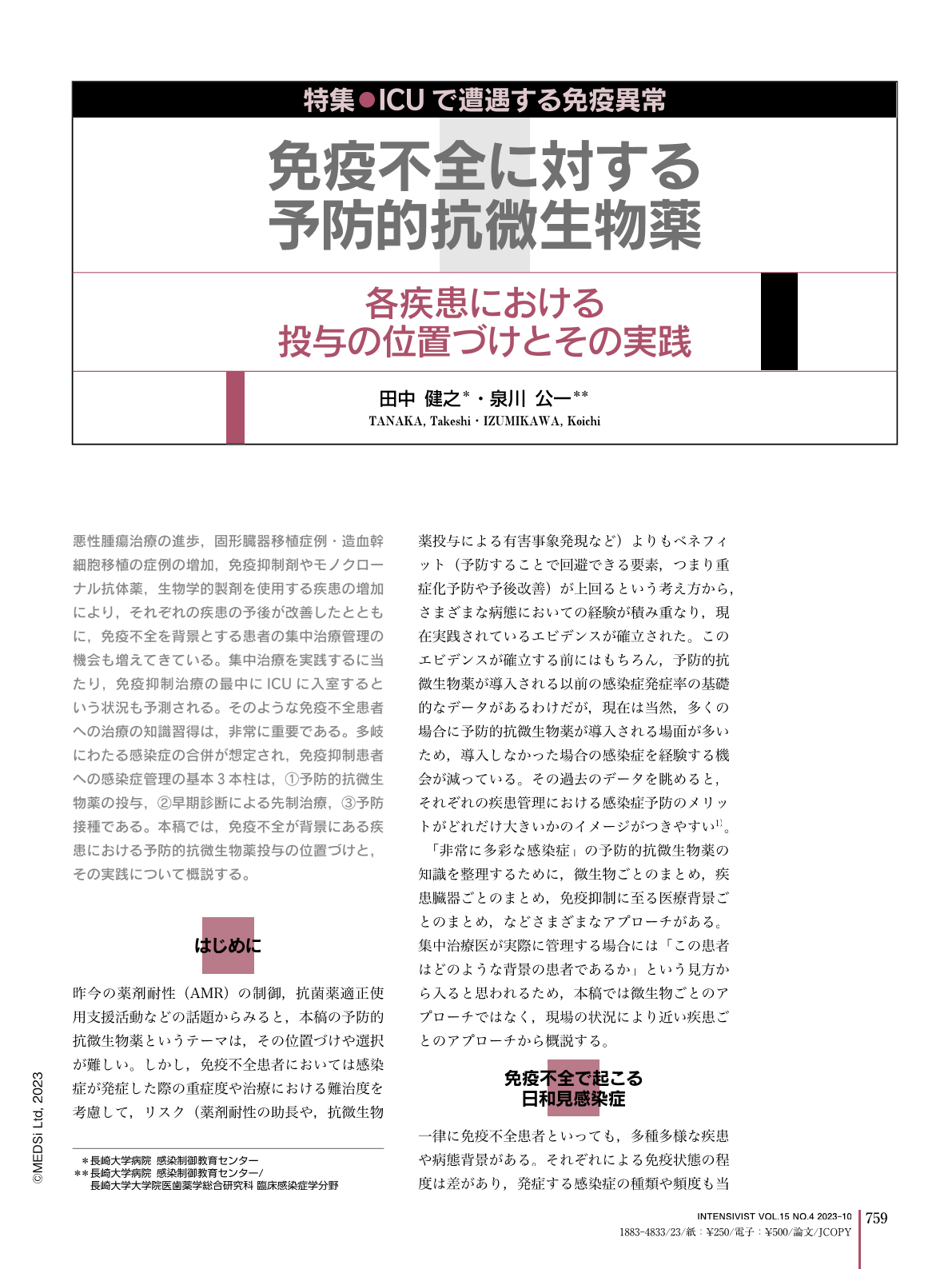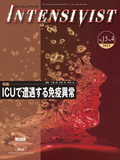Japanese
English
- 有料閲覧
- Abstract 文献概要
- 1ページ目 Look Inside
- 参考文献 Reference
悪性腫瘍治療の進歩,固形臓器移植症例・造血幹細胞移植の症例の増加,免疫抑制剤やモノクローナル抗体薬,生物学的製剤を使用する疾患の増加により,それぞれの疾患の予後が改善したとともに,免疫不全を背景とする患者の集中治療管理の機会も増えてきている。集中治療を実践するに当たり,免疫抑制治療の最中にICUに入室するという状況も予測される。そのような免疫不全患者への治療の知識習得は,非常に重要である。多岐にわたる感染症の合併が想定され,免疫抑制患者への感染症管理の基本3本柱は,①予防的抗微生物薬の投与,②早期診断による先制治療,③予防接種である。本稿では,免疫不全が背景にある疾患における予防的抗微生物薬投与の位置づけと,その実践について概説する。
Advances in the treatment of malignant tumors, the increasing number of solid organ transplant cases and hematopoietic stem cell transplant cases, and the increasing use of immunosuppressive agents, monoclonal antibody drugs, and biological agents have improved the prognosis of each disease and increased the opportunities for intensive care management of patients with an immunodeficient background. In the practice of intensive care, patients may be admitted to the intensive care unit while undergoing immunosuppressive treatment.
Knowledge of the treatment of such immunocompromised patients is very important.
A wide variety of infectious complications can be expected. The three basic pillars of infectious disease management for immunosuppressed patients are (1) prophylactic administration of anti-microbial agents, (2) preemptive treatment based on an early diagnosis, and (3) immunization. This chapter outlines the position and practice of prophylactic antimicrobial administration in diseases with a background of immunodeficiency.

Copyright © 2023, MEDICAL SCIENCES INTERNATIONAL, LTD. All rights reserved.


